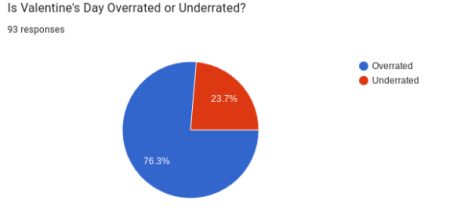Protect the planet, ban plastic bags
April 16, 2019
As Americans, we thrive on efficiency and finding ways to make our lives easier. Companies thrive on our need to make our lives easier. That’s where plastic bags come in.
Americans use more than 100 million plastic bags a year, and the actual need for that bag is a small 12-minute-long lifespan, according to the website of the Center for Biological Diversity, a charitable organization that works through science, law and the media to secure a future for all species, especially those on the brink of extinction.
In 2018, one of the biggest trends toward saving the wildlife was the plastic straw ban. Across the country, people were dishing out our need to save the turtles or any other dying sea creature from a home made of plastic.
Sadly, it was mostly talk and not much actual banning.
This trend did show, though, that people want to help the planet. They want to see change. They want to be the change. They just don’t want to do the work that will cause the change.
That’s why the change needs some legal backing to it. What will the first step be? Plastic bags in super stores, such as Target and Walmart, should be banned– not just because of the destructive effect they have on the overall well-being of the planet but because, without an actual ban, people will not stop using bags.
It isn’t just the environmentalists who spout out these necessary actions regarding man-made products killing the planet. Teenagers express similar ideas.
“Plastic bags are so bad for the environment, but the thing is people are too lazy to stop using them,” Junior Miles Chubin said.
He isn’t wrong. Of course, no one person wants to be the assistant in administering Earth’s poison, but how else are people supposed to carry their milk and orange juice to the car?
“Stores like Target should be giving tote bags that are reusable,” Chubin said.
The word reusable was a frequent word that popped up in solution ideas– in Sophomore Reyna Dodd’s idea as well.
“People should just start bringing their own bags,” she said.
Dodd’s family has a large collection of reusable bags that get put in the car before a shopping trip. While there are many families that do this and limit their need for plastic bags, the average American family takes home 1,500 plastic bags a year, according to the Center for Biological Diversity.
The future is quite literally in our hands. We touched the bags that are choking turtles to death, and that is disturbing. There is not going to be a solution that will help right away because bags take years and years to decompose– if they even decompose at all.
It is time, then, to take initiative before it becomes too late to make any sort of dent in the amount of bags in the ocean.
According to the United Nations, by 2050, there will be more plastic than fish in the world’s oceans. Imagine that. There could be more of a chance to catch plastic while fishing than actual fish.
The Earth is in a constant war of survival, but there are only a select few countries that have made progress in limiting negative human impact on our environment.
The New York Times article, “Follow Kenya’s lead on Plastic Bags,” written by the NYT editorial board in September 2017, stated, “More than 40 countries, including China, France and Rwanda, have taxed, limited or banned plastic bags. Kenya itself has been fining manufacturers of plastic bags with amounts of $19,000-$38,000.”
Whether it is putting taxes on bags or just replacing them with reusable cloth bags, change is required for future generations.
If banning seems too farfetched, there should at least be a tax on plastic bags. Chicago implemented a 7-cent tax on bags, and it seems to be working, as shown in an April 21, 2017, Sun-Times article titled, “Chicago’s 7-cents-a-bag tax driving down bag use, study shows” by Fran Spielman.
Tatiana Homonoff, a professor at NYU economics, also contributed to an assessment written in September 2018, titled, “Skipping the Bag,” where she makes significant points and incentives regarding taxing plastic bags.
“The larger the tax, the larger the corresponding behavior change,” she said.
This is important to keep in mind because while humans may not be tree huggers, they are frugal– meaning that they would not want to spend money on the little things, such as bags, which would therefore lower the overall use of bags.
Overall, these bags may be beneficial for a couple of minutes, but after that, all they do is harm the planet and act as decorations on trees.
Around the nation, all stores should start implementing policies that ban or tax plastic bags because there is nothing more useless than plastic bags. If something as simple as banning bags or taxing them can help save the well-being of the planet, why isn’t there more being done?
When push comes to shove, it’s time to step up and help– either stop using plastic bags or pay up.
